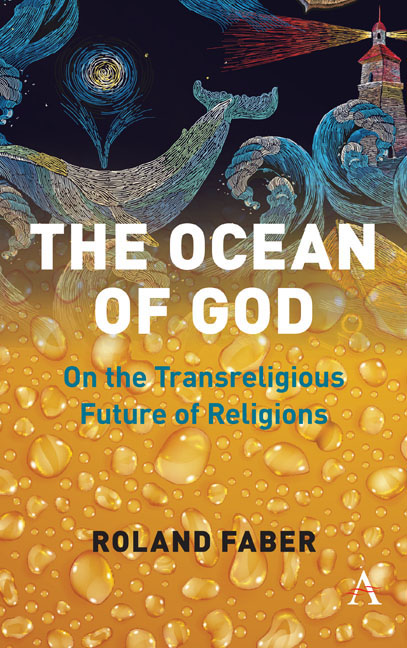Book contents
- Frontmatter
- Dedication
- Contents
- Introduction
- Part I Paradigms of Unity and Plurality
- Part II Negotiations of Multiplicity
- Part III Transreligious Horizons
- Chapter Eleven The Transreligious Discourse
- Chapter Twelve Other Religions: From Coinherence to Coinhabitation
- Chapter Thirteen The Earth and Other Worlds: A Story of Cosmic Magnitude
- Chapter Fourteen The Future of Religions
- Chapter Fifteen One with All Religions
- Glossary
- References
- Index
Chapter Fifteen - One with All Religions
from Part III - Transreligious Horizons
Published online by Cambridge University Press: 09 July 2019
- Frontmatter
- Dedication
- Contents
- Introduction
- Part I Paradigms of Unity and Plurality
- Part II Negotiations of Multiplicity
- Part III Transreligious Horizons
- Chapter Eleven The Transreligious Discourse
- Chapter Twelve Other Religions: From Coinherence to Coinhabitation
- Chapter Thirteen The Earth and Other Worlds: A Story of Cosmic Magnitude
- Chapter Fourteen The Future of Religions
- Chapter Fifteen One with All Religions
- Glossary
- References
- Index
Summary
Enter the paradise of the spiritual Kingdom, diffuse the lights of the Sun of Truth, cause the waves of this Most Great Ocean to reach all human souls so that this world of earth may be transformed into the world of heaven.
— ‘Abdu'l-BaháThe final question to be asked, then, is what, in light of the conversation with religious pluralism, may be the contribution of its polyphilic mode, and its exemplification by the Bahá’í universe of discourse, to the conversation about the future of religions, their reconciliation and unification, in communicating their presupposed divine unity in the ongoing interreligious discourses? What could the pluralism of pluralism look like from a Bahá’í perspective for the general discourse? If we accept, from a polyphilic perspective, that the “superposition” of the vertical and horizontal axes of religious pluralism prohibits simplifications regarding the understanding of the meaning of unity and plurality (the exclusion of one axis by the other or their substitution one for the other), we would neither seek for plurality to generate normative incommensurability between religions (the fallacy of essentialist pluralism) nor try to substitute the discourse on unity with versions that insist on the dissipation of the multiplicity of religions because of their alleged foundational sameness (the fallacy of essentialist unity). And given the complex interferences of the horizontal and vertical axes, as well as the complex intersections of the meaning of unity and multiplicity in the Bahá’í writings, we may also not wish to pursue the path of opposing the fundamental Bahá’í principle of the unity of religions to religious pluralism— as both exhibit the same aim: spiritual peace as the sign of a spiritual maturation of humanity.
Nor should we forget that the oscillating polyphilia of the divine Spirit already embraces both axes in a variety of levels of unification and diversification, eternally, as it were, breathing in modes of more or less, wider and smaller, clearer or more blurred, and mirroring itself (its Self) according to the more or less dusted or bright capacities of the mirrors to reflect “its” depth. And while some of these modes of mirroring will be more inclined toward oneness, others will gleefully appeal to the pleroma of multiplicity, or conversely, in flight from this immensity seek the warmth of a stone in the sunlight rather than the clarity of light in a crystal.
- Type
- Chapter
- Information
- The Ocean of GodOn the Transreligious Future of Religions, pp. 189 - 200Publisher: Anthem PressPrint publication year: 2019



